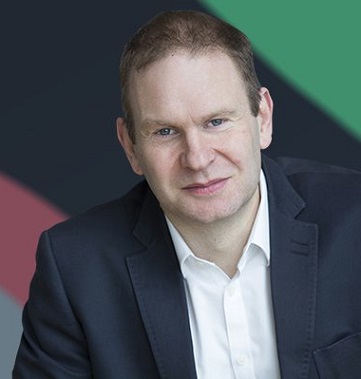Digital Detox is an American company that offers people ‘the opportunity to put aside their digital arm’ and ‘reconnect with what’s important to them’. They ban retreat attendees from using technology and preach ‘disconnect to reconnect’ to those who feel overwhelmed by technology in their lives. Afterwards, how many of those people go straight back to using their smartphones?
Technology is a double-edged sword. It has brought convenience and improved communication. It can save time, money and lives. It can also make life more complicated, stressful, isolated and expensive. Is it any wonder that people are unsure, when asked, whether technology has made life better?
In our Digital Futures Index research, 66% of adults said yes, technology has had a good impact on them personally. Then we delved deeper and the doubts crept in: only a quarter of adults think technology has a good impact on their health, only 37% think it’s good for their relationships, and a mere 16% think it reduces crime.
The difficulty is that we have yet to fully manage the new challenges of technology in order to streamline the benefits, of which there are many. Technology has been revolutionary for healthcare; many people alive today would not be, were it not for technology. It has also made day-to-day life much more satisfying and fulfilling for people living with chronic health issues, or coping with a disability. And the future potential is vast. Digital devices offer a struggling NHS new options for providing services, while wearable health devices that closely monitor a patient could help diagnose faster and allow those with chronic illness live well for longer. Fast forward ten years and people may feel differently about the power of digital devices to improve their health.
Their current scepticism is not unfounded. Social media is criticised for amplifying anxieties and mental health issues. Technology makes us more sedentary, fuelling problems such as obesity, heart disease and cancer. Fitbits have no proven long-term effect on fitness or health, and the time we spend looking at screens is detrimental to sleep. Yet many runners have delighted in being able to plan their routes online, log their runs and connect with a community of likeminded people via different apps. Is it an incentive to keep fit? Most likely.
Personal relationships have both prospered and suffered from the influx of technology. More and more people are finding love online (the UK has over 1,400 dating websites) amid busy lives. Social media has revolutionised relationships, some of which are conducted solely in the digital world, and reduced isolation by connecting people digitally with likeminded souls. The internet has also provided a lifeline for those who would struggle to maintain contact with loved ones overseas and facilitated long distance relationships, helping bring families together and fostering unity.
The flipside to that is an introduction of new issues to our society by reducing face-to-face social interaction and damaging communities. Almost 70% of Brits aren’t leaving the house as much as they used to, 69% of whom said this was due to the developments in technology. For the individual, technology presents additional challenges for relationships. Chris Sherwood, CEO of Relate reports that 62% of the counsellors at his relationship-support organisation agree that technology has a negative impact on relationships – it is the most common reason people seek their help. Sherwood suggests the difficulty comes from people not yet knowing ‘the rules’ of relationships that feature technology. Perhaps digital devices and our use of them are developing faster than our social expectations and boundary-setting?
Technology has opened up new and powerful avenues for criminals – a recent Europol report found that technology is used by gangs in ‘almost all types of crime’. The rise of cybercrime in line with the increase in business and personal data being shared online is a toxic combination, with the potential for serious harm from determined hackers. Yet technology offers new opportunities for law enforcers. They have the same tools as the cyber criminals, after all. In the ‘real world’ of crime, UK police are already experimenting with drones for surveillance and AI systems to help guide decisions over whether to keep a suspect in custody. There have also been trials of technology that can scan large crowds for known suspects – far quicker than a human could – in a bid to reduce terrorist attacks. Are we safer with technology or more at risk?
It is a dilemma we have grappled with forever. Cars greatly improved mobility, but also introduced car accidents to our world. Around 1.25 million people die on the world’s roads each year [WHO 2013] and the damage to our environment from roads and pollution is irreversible. But would we be without our vehicles?
Advancement and challenges have gone hand in hand since man first made fire, and human kind has adjusted to each new challenge by focusing on the benefits and minimising the potential damage. Technology is neither good or bad, it is how we use it that matters. If we invest more time and effort in ensuring that it is used as a force for good, the impact on us could be phenomenal.
